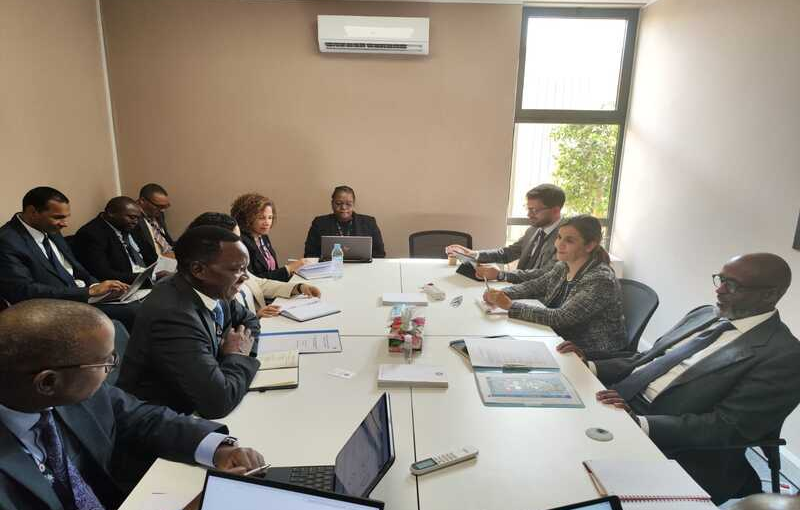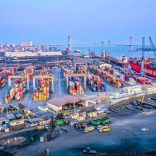FATF expected to remove Mozambique from "grey list" in September
IMF/WB Annual Meetings: Mozambique requests additional financing for climate shocks

Photo: Ministério da Economia e Finanças de Moçambique
Governor of the Bank of Mozambique Rogério Zandamela argued for additional financing, taking into account the climate shocks that the country has been suffering with greater frequency and intensity.
Zandamela was speaking at the annual meetings of the International Monetary Fund (IMF) and the World Bank (WB) in Marrakesh, Morocco, last Friday (13-10),
In a meeting between the Mozambican delegation and the director of the IMF’s African Department Abebe Selassie, Zandamela highlighted challenges in revenue collection and the sustainability of public debt.
Together with the deputy minister of economy and finance, Amilcar Tivane, the central bank governor shared perspectives of the macro fiscal and monetary environment, including for next year, having referred to the gradual recovery of Mozambique’s post-Covid economy, with annual growth of 7% expected in 2023 and 5% in 2024.
The source highlighted that annual inflation, at 4.6% in September this year, is on a downward trend, “after we ended last year at 10.9%, a reflection of the restrictiveness of monetary policy and exchange rate stability “.
In turn, deputy finance minister Amilcar Tivane shared the state of play regarding salary reform, explaining that “the effort continues to be aimed at stabilising the volatility of the salary bill, carrying out continuous audits of the process in the Single Salary Table (TSU) and incorporating all payments of salaries in the security area in the State Financial Administration System”.
Abebe Selassie welcomed the efforts of the Government of Mozambique towards the implementation of reforms and encouraged them to continue at the same pace. He referred to the IMF’s new financing lines, especially the Resilience and Sustainability Trust Fund (RST), as a resource for countries most affected by climate change and highlighted the need to calibrate fiscal and monetary policies towards consolidating macroeconomic stability in the medium term.












Leave a Reply
Be the First to Comment!
You must be logged in to post a comment.
You must be logged in to post a comment.